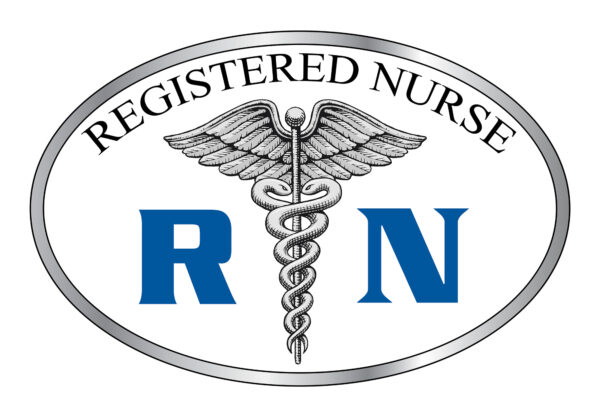
If you are a registered nurse or nurse practitioner, you can obtain Botox certification from cosmetic medical training in a single day.
You can get your Botox certification from cosmetic medical training in just one day if you are a registered nurse or nurse practitioner. Professionals with more than 20 years of expertise in the field of medical aesthetics teach the courses in Botox and Dermal Filler.
Medical licensing boards at the state level frequently develop standards for botox certification. For this reason, the states have different requirements for the types of medical professionals (doctors, dentists, nurses, nurse practitioners, and PAs) who can legally administer Botox and other Botulinum Toxin A, as well as the type and intensity of training required for Botox certification.
Successful completion of a Botox training program leads to certification as a Botox injector for Nurse Practitioners and Registered Nurses in states that offer such certification. Our intensive one-day certification course for nurses includes hands-on injection training with live models using a variety of procedures and techniques, as well as guidance on safe, effective injections for common facial sites, such as:
- Forehead wrinkles
- The Frown lines
- Crow’s feet
- Lip creases
- Nasal lines
- Perioral Lines
- Chin with Dimples
- Brow Lift
- Lower Eyelid
- Marionette Lines
If you’re a nurse or nurse practitioner seeking information on Botox certification, you’ve come to the correct spot. Dentox is available to assist you whether you’re in New York, Dallas, Houston, Colorado, or Los Angeles.
Step 1: Learn the significance of a Botox certification
Botox is particularly popular now since it is a non-invasive cosmetic surgery, which is all the rage. Learning how to inject Botox:
- improves your capacity as a nurse.
- allows one to access potentially profitable possibilities.
- lays the groundwork for subsequent investigations of aesthetics.
Step 2: Pick the Best School for Your Training Needs
The best Botox training course generally provides:
- specialist nursing education.
- professional educators with years of expertise
- a combination of theoretical knowledge and practical experience
- full practice support from A to Z is provided.
Step 3: Participate fully in the course
The Botox training class commonly teaches an in-depth exploration of:
- the muscle structure of the face
- techniques of injecting that is correct.
- precautionary measures.
- patient consultations.
- recommendations for follow-up care.
Step 4: Obtain Your Credentials
As an indication of your commitment, knowledge, and willingness to serve clients in the aesthetics field, your Botox certification will be awarded to you upon completion of your course.
Step 5: Comprehend your legal constraints
Each state has its own set of regulations. If you want up-to-date information on your state’s specific requirements for nurse practitioners, you can get in touch with your state’s medical board. Visit https://dentox.com/medical-dental-and-nursing-state-boards/ to get in touch with the appropriate medical board in your state. Now, under a doctor’s supervision, registered nurses can inject Botox.

Registered nurses in the state of New York can legally inject Botox, but only under medical supervision in NYC.
Botox injections are legal in the state of New York for registered nurses, but only with medical supervision in New York City. In addition, a comprehensive evaluation of the patient must be conducted beforehand.
In Dallas and Houston, Texas, a physician must be on-site when a registered nurse (RN) administers Botox. A pre-procedure consultation with the delegating doctor or other qualified healthcare professional is required.
Injections of Botox are legal for registered nurses in Denver, Colorado, if they have completed the necessary training and certification. This is according to Colorado’s “Practice Act.” However, working with a doctor is essential.
Los Angeles, California: Registered nurses in California can administer Botox under the supervision of a doctor, but first a doctor must examine the patient.
If you want the latest information, it’s best to double-check with your local and state regulations.
Step 6: Open for Business with Botox
After possessing the certificates, you get the opportunity to:
- Make a choice between joining an existing medical spa or launching your own.
- Keep up with what’s trending in aesthetics.
- Connect with other experts in the subject and build a strong network.
- Make lifelong education a top priority.
Step 7: Grow and expand
Most schools offer more than just Botox courses. Dermal fillers, laser treatments, and other expanding training opportunities will broaden your practice’s scope.
Learn about Botox and dermal fillers by going to https://dentox.com/live-courses/. Doing so will increase both your employability and the range of skills you possess.
An Overview of Botox Training
Botox courses typically cover the following material:
- Anatomy and physiology: Facial muscle anatomy and physiology knowledge is essential for administering injections without incident.
- Techniques of injection: Learning the fine art of precise injections through hands-on practice
- Safety Procedures: Identifying, Assessing, and Treating Risks
- Consultation abilities: Guiding clients through the process while making sure they’re informed and at ease.
Dentox’s all-encompassing courses are made to help registered nurses and nurse practitioners become skilled Botox injectors. Please visit https://dentox.com/all-courses/botox-training/ for more details about Dentox’s online training programs.
Certification Training Duration and Costs
How much does Botox training for registered nurses and nurse practitioners cost? Our courses are set up for professionals who are busy:
- Duration: Training sessions typically last one to three days, ensuring thorough but brief learning.
- Price: Reasonable costs provide excellent value. You can browse based on your location, as we provide detailed pricing information on city-specific landing pages.







